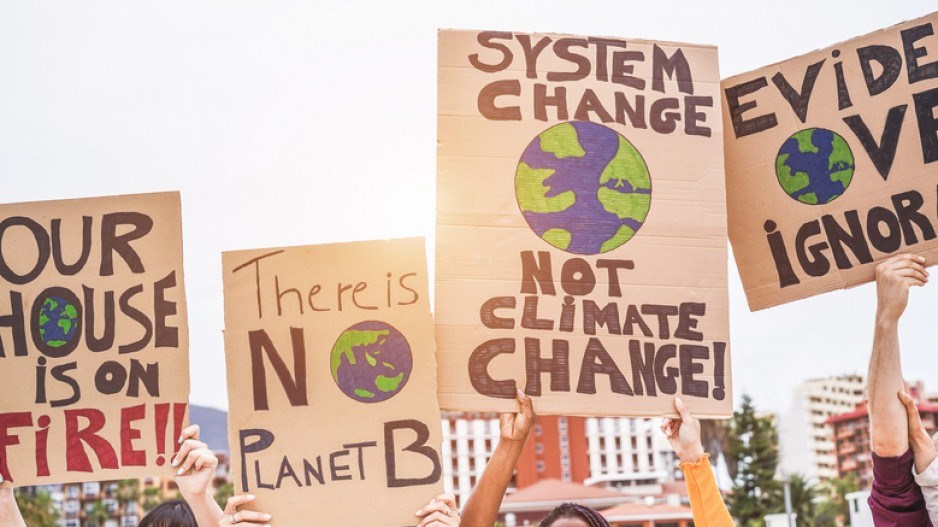When Research Co. and Glacier Media asked Canadians earlier this year about , the highest level of satisfaction from voters was recorded on three issues: Canada’s reputation in the world, Canada’s role in global affairs and the environment.
While 21% of Canadians feel the environment is better now than it was six years ago, the proportion rises to 28% among those aged 18 to 34. Middle-aged and older voters are more skeptical about Ottawa’s policies on this file. Some would like to do more and others believe enough action has been taken already.
On this issue, party allegiance also plays a role south of the border. As Americans prepare for a presidential election that may lack the convention pageantry of the past, prospective Democratic Party nominee Joe Biden has his largest lead over incumbent Donald Trump on managing the environment. (46%) regard Biden as the best person candidate on this issue – a 20-point advantage over his Republican Party rival.
Earlier this month, we studied perceptions about climate change in Canada and the United States. Almost two-thirds of Canadians (64%) think global warming is a fact and is mostly caused by emissions from vehicles and industrial facilities. This represents a four-point increase since we , at the height of discussions about a “Green New Deal” before the federal election.
While 23% of Canadians believe global warming is a fact and mostly caused by natural changes, only 7% refer to it as a theory that has not yet been proven – a proportion that rises to 12% among those who voted for the Conservative Party last year.
In the United States, a smaller majority (53%) believe climate change is real and caused by emissions. The proportion of Americans who regard global warming as “natural changes” is similar to what we find in Canada (25%). Finally, 14% of Americans claim that climate change is an unproven theory – including 26% of Republican Party supporters.
A follow-up question provides a similar outcome, with 62% of Canadians and 51% of Americans branding climate change as a minor crisis. While 7% of Canadians and 16% of Americans think global warming is not a crisis at all, the numbers jump to 18% among federal Conservatives in Canada and 27% among Republicans in the United States.
In spite of the skepticism of these two well-defined groups, a countrywide consensus emerges on two possible ways forward. Large majorities of Canadians and Americans want companies and corporations (75% and 59% respectively), governments (69% and 56%), and individuals and consumers (64% and 55%) to do more in order to deal with issues related to climate change that are now happening or impacting people directly.
When asked about the consequences of climate change in the future, support is equally strong for decisive action from companies and corporations (76% in Canada and 61% in the United States), governments (71% and 58%), and individuals and consumers (66% and 55%).
When Canadians are asked about their willingness to pay higher taxes to adequately address seven specific issues, climate change is at the top of the list with 60%. Canadians are more reticent about higher taxes in order to address homelessness (55%), schools (also 55%), forest fires (53%), transit improvements (51%), housing improvements (50%) and floods (45%).
The way Americans perceive these fiscal choices is slightly different. In the United States, more residents are willing to pay higher taxes for schools (62%) and homelessness (58%). Climate change is ranked third on this list (54%), followed by forest fires (53%), transit improvements (52%), housing improvements (51%) and floods (47%).
There was an expectation that the actions of young environmental activists would be replicated inside North America’s homes. When parents are asked if their children’s lobbying efforts have been influential in some of their decisions, the numbers are similar in the two countries.
Majorities of parents (67% in Canada and 56% in the United States) say they have been compelled to recycle more because of conversations with their children. The level of effectiveness is lower on concerns such as driving less than usual (38% in Canada, 32% in the U.S.), taking shorter showers (34% in Canada, 31% in the U.S.) and reducing the consumption of meat (24% in the two countries).
The COVID-19 pandemic has not dented the desire of Canadians and Americans to deal with climate change, and their views are not particularly polarized. Most residents believe global warming is real, caused by humans, and a crisis, but American Republicans and Canadian Conservatives are more likely to be on the outside looking in.
Results are based on online studies conducted from June 1 to June 3, 2020, among representative samples of 1,000 adults Canada and the United States. The data has been statistically weighted according to Canadian and U.S. census figures for age, gender and region in each country. The margin of error, which measures sample variability, is plus or minus 3.1 percentage points for each country.



